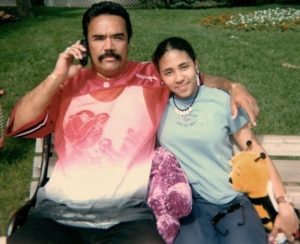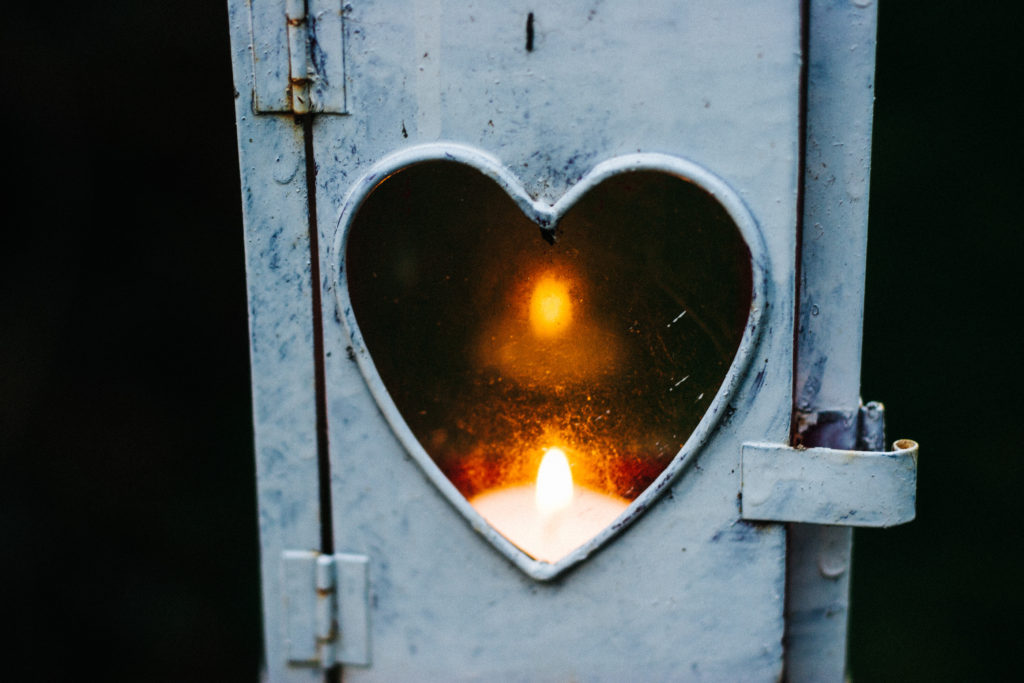I was ten years old when my mother told me my father had been diagnosed with HIV. I remember thinking that it meant he was going to die. After all, that’s what happened.
It was a big secret. I wasn’t supposed to tell. However, I told my grandmother nigh immediately. It was too much to hold on to for a child. I vaguely remember being in trouble, but it didn’t matter. To me, the message was clear: HIV is shameful. HIV means you did something wrong. HIV is not to be talked about.
So we didn’t.
And that’s a problem. According to the CDC, 48% of people diagnosed with HIV are Black. Yes, you read that correctly. 48%. I have had one too many people in my life stolen or living with the disease. A disease no one seems to quite talk about anymore, yet people would still rather die than admit they have it. In fact, my Uncle did just that. I’m sure I’ll lose a few family members for that one. However, the truth of the matter is that HIV is still here. Its still around, and it is still running rampant through my community.
And that is precisely why I want to larp about it.
Now, I’m sure for those who see larp as only fantasy escapism (which is fine, we need to escape too) this is disrespectful. Harsh. Nasty. Why would you make-believe the AIDS crisis? My answer? Because I miss my Father.
Larping is not just for escapism. It is my belief that through larp, people can learn to feel empathy with others. This is not an unheard of concept. As a child, we all play make-believe. We do this to make sense of our world and universe, and to try on future roles. As someone who taught preschool for quite some time, I can tell you that my entire classroom was geared for this particular type of play, because that was how my children learned best.
Adults learn through make believe as well. Children learn by doing, gaining unique neurological benefits from doing so. One can argue that this does not stop when you reach adulthood. Through larp (live action roleplaying), people can build empathy simply by enacting situations they have not been in. Maury Brown and Ben Morrow have an excellent explanation of this concept. The idea of building a double consciousness through larp may seem academic mumbo jumbo, but trust me, emotional conflict and deep feelings do occur when you are playing someone else for an extended period of time. Which is why I want to play in Just a Little Loving, which is about “friendship, desire and a fear of death.”
What the hell is Just a Little Loving ?
This Fall, while sitting in my NYU classroom, I learned about a Nordic larp that nearly sent me through the roof. Just a Little Loving, or JaLL is a Larp set at the dawn of the AIDS crises in New York, at a series of Fourth of July parties in 1982, 1983, and 1984. The very concept made me want to scream. How could the organizers possibly know what it felt like? They weren’t even from here. How dare they? I went looking for all the information I possibly could, and ran into several players’ first hand accounts. What I found was not only shocking, it made me feel conflicted. JaLL challenged my ideas about what larp was. Would it still feel the same if we didn’t sugar coat it with fantasy themes? Could larping also be playing out the joy of a barbecue, or the sadness of a lover’s death?
From the experiences I found, players were walking away with knowledge of the AIDS crisis they never had. They were not only learning about HIV/AIDS, but they were experiencing the type of grief and loss that enabled them to have more empathy with those who suffered. They were talking about substance abuse, LGBTQI issues, history, cancer, grief and sexuality. They were talking about desire, friendship and family. In short: Participants felt like it was a revelatory experience.
I wasn’t wholly convinced.
One handy search told me that JaLL was going to run for the first time ever in America. Despite the larp being set here, it has never been run here. I signed up for updates, and patiently waited. I pondered asking questions of the organizers, but in truth I didn’t think I was ready to talk to them. I still wondered who they were and what they knew. As I studied around them, I found that the game held extensive workshops and post larp workshops. The entire subject was serious, and no one seemed to be taking it lightly.
I really didn’t want to like this, but the more I dug the more I found myself wanting to play. Something bothered me, though. Something still stopped me from thinking that this larp could have been anything that was needed. Perhaps it was my own view of what larp is, and what it could do. I don’t know, but I still stubbornly sat on the fence at Knutepunkt.
Until I met a participant.
Like most conversations at Knutepunkt, this one ranged all over the place, and I was surprised when he caught a hitch in his breath. He explained it had still been hard for him to see someone he played with during his time at JaLL. They had died, and he missed them. I explained I had not been sold on JaLL, that I wasn’t sure what anyone knew.
“Have you met Tor?”
I wasn’t sure I had. Grabbing my hand, he led me through a maze of people, up an elevator and through a hallway until I reached Tor, whose smile is a delightful as the warmth that spreads from his eyes.
And then my facilitator, in all his glory, left. He left me with one of the main writers of this larp, and I wasn’t quite sure what to do, except tell him everything I felt and was feeling. Tor has that ability. To be fair, so does Hanne, who also heard me express the same sentiments later. Both are deeply involved activists and educators who also design larp, and their receipts are miles long.
Tor explained to me that the game is fun, but it’s also about education. People seem to have forgotten HIV, but it’s still here. People are still living with it and dying from it. JaLL, aims to educate, but also explore. It’s not just about HIV. It’s about relationships, desire, life and death.

In an hour, I had not only been convinced that I wanted to do JaLL, but that I wanted to get everyone to do it, especially larpers of color, for whom this story would resonate deeply. I wanted to document it with words and pictures. I have never wanted to play something that I know will leave me shaken. Probably because I feel like it might also set me free. JaLL isn’t simply a larp about HIV. It’s a larp about relationships. It’s about loss and love. It’s about families and friendships.
On March 18th, my father will not be celebrating his birthday. I miss him a lot. The last big memory we have together is him throwing my 18th birthday party in our backyard in the summer heat. His laughter was infectious, loud and grating. He brayed my name, holding the “a” for far too many syllables. He was great with his hands, and could build houses, decks and work all sorts of machinery. He was an artist too, working in glass and drawing beautiful pictures on envelopes sent from prison, which is where they put you if you are young, Black and an addict. He was a good person, who would give you the shirt off his back. He also lived with HIV for eight years, until his heart quit. I miss him.
I want others to understand that HIV has not gone away. It still lingers, infecting my community with impunity. People have forgotten that it is there and waiting.
I have not. I can never.
Asking Just a Little Loving to help out is pretty big. It’s a lot to ask of a larp. However, I feel like it can deliver.
Links
Sign ups for JaLL’s American Run.
The Danish Run Produced an excellent documentary book with photos and essays.
